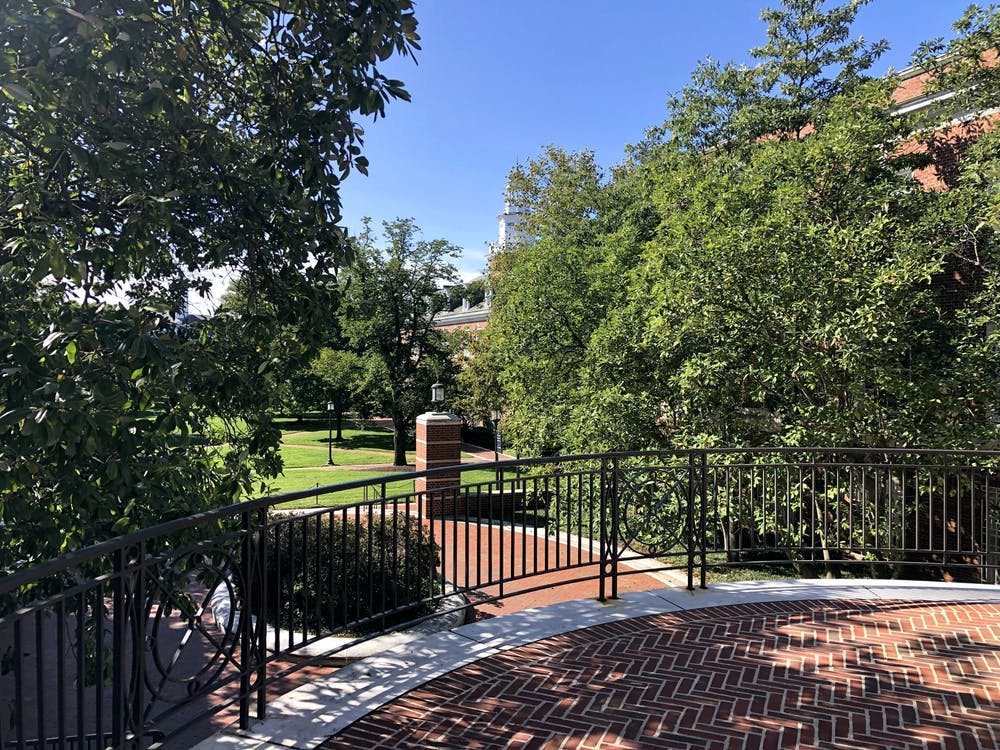The summer before my freshman year, I combed the internet trying to find ways to have an unforgettable college experience (why not? I only got one chance). I wanted one simple recipe: Do X, then do Y, but make sure you maintain Z. I talked to my friends’ older siblings to hear what they had to say, but they were all very different: One loved their ballet group and another enjoyed their research in antiferromagnetism.
Just as there are many interpretations to a single story, there is no one way to enjoy college. During my time at Hopkins, I have meandered through majors, friends, clubs and homes, and each one had its own unique satisfaction.
However, there are a few ways that you can actively augment your college experience. Frank Bruni suggests that students work alongside their university to help each other rather than consume resources. It’s easy to complete Hopkins by only enrolling in the courses required and completing the graduation requirements, but that overlooks a major aspect of Hopkins: the people.
The students at Hopkins come from all walks of life, and the conversations you’ll have — in the library, waiting in line at FFC, walking between classes — will shape your undergraduate years. Conversations with people bring us closer together and define the Hopkins experience. Looking back as a senior, I seldom recall the midterm of a class or the contents of a paper, but the conversations on the beach or at C-level remain clear in my head.
Apart from talking to students, take the opportunity during college to speak with your professors during their office hours. Professors can often seem distant and it can feel intimidating to ask questions, especially ones that you think might make you look stupid. However, whenever I asked questions during office hours, I came back less stressed and more curious.
In an essay called “Empty chairs,” then-Princeton-student Azza Cohen explored the predicament of vacant office hours.
“Our professors open their doors and offer us their undivided attention for about two hours a week, two hours that too often fall to the bottom of my list of priorities,” Cohen wrote.
When I read this essay during my sophomore year, I had never been to any office hours, let alone a professor’s. I tried it out a few times since then, going to their office hours after writing a midterm or submitting a paper so I didn’t feel like our time was bounded.
And the conversations were remarkable: I learnt how D. H. Lawrence’s novels inspired my Expos professor to write her dissertation on him or why another professor dropped her Chemistry major to become an art historian. One professor bought me Burger King and stayed back as we solved a math problem.
These experiences are not ones that can be learned in a lecture hall or crammed the night before an exam. These conversations never affected my grade, but these mentorships are one of the things I cherish most about my time at Hopkins.
Grades are another thing that is an overarching aspect of the university experience, and this feeling is not restricted to Hopkins. A quantifiable metric allows students to be benchmarked and compared, creating a linear scale that conceals qualities like creativity, grit and leadership potential. At college, grades seem to have omnipotent powers: They can make or break futures. Yet, their significance decreases precipitously a few years after college.
In a New York Times Opinion, Adam Grant provided his thoughts on his college grades.
“Looking back, I don’t wish my grades had been higher. If I could do it over again, I’d study less. The hours I wasted memorizing the inner workings of the eye would have been better spent trying out improv comedy and having more midnight conversations about the meaning of life,” Grant wrote.
Of course, this cannot apply to everyone. Some commitments — grad school, med school and others — have placed systematic GPA cutoffs to distinguish thousands of applicants. Nevertheless, you should not allow this to restrict you from socializing or taking a few courses outside your comfort zone. The key is balance, and maintaining that during undergrad can be a difficult, albeit rewarding, feat.
Four years of college seem like a lot as a freshman, but they fly by incredibly quickly. It seems like yesterday I was walking into the Rec Center to be assigned my Pre-O Hiking group. And now I’m here, waiting for my name to be called on the Homewood Field and get my diploma.
But my Hopkins experience is not defined by that piece of paper and my transcript: It is the serendipitous chats with friends while procrastinating on my school work, the decisions to join certain clubs last minute for which I am forever grateful and the seemingly unrelated courses that surprisingly intersected with my computer science coursework.
So my advice to you, my dear freshmen, is to make a stronger relationship with the University and its people: Doing so will help you have a rewarding undergraduate experience. You only get one shot, right?





